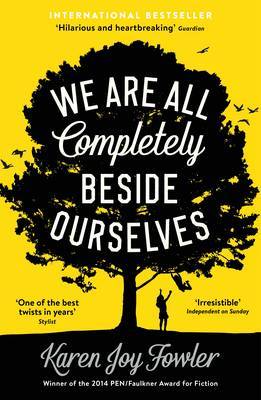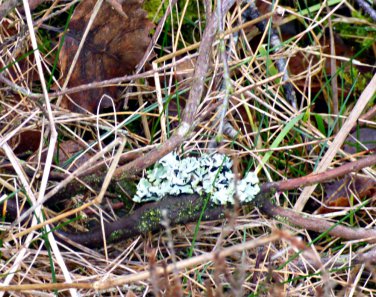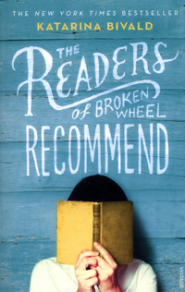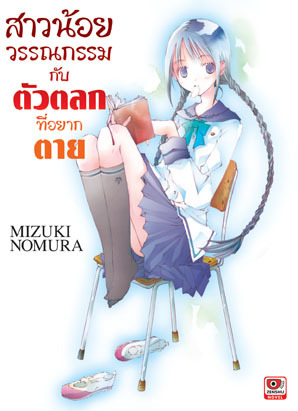By Karen Joy Fowler.
 I guess that We Are All Completely Beside Ourselves is a kind of a love story. Not the love between a man and a woman, or for the politically correct any other kind of that may include passionate love. It is about familial love between two sisters.
I guess that We Are All Completely Beside Ourselves is a kind of a love story. Not the love between a man and a woman, or for the politically correct any other kind of that may include passionate love. It is about familial love between two sisters.
Rosemary’s father was a university professor, who often had students in his home, studying and helping with her father’s research. It seemed quite normal to the young Rosemary that the students were there so often, though it was not until she was an adult that she understood why they were there so often.
On day, years before Rosemary’s age is into double digits, she is sent to stay with her grandparents for a while. When she returned, her sister Fern, her other half had vanished from her life.
Why did fern vanish. Where did she go. How did fern’s disappearance set Rosemary’s brother Lowell on a course that would make him wanted by the FBI?
Fowler’s novel is Rosemary’s story, and to a lesser extent her brother Lowell’s and her parents, of growing up and living after the disappearance of Rosemary’s beloved sister Fern.
According to the cover of my copy of We Are All Completely Beside Ourselves, it was shortlisted for the Man Booker Prize 2014. I did not bother to find out if it won. I had picked it up in a charity shop, attracted by the back of the book which included the phrase “What if you grew up to realise that your father had used your childhood as an experiment?”.
I persevered to finish Fowler’s novel but, as you might guess from the start of this sentence, it was not a book I particularly enjoyed. It is not badly written, or it would not have been shortlisted for Man Booker. I disliked the style of writing and it was not a story that held my attention.
Advertisements Share this:




![Closer to You (Haven, Montana Book 1) by [Sanders, Jill]](/ai/082/677/82677.jpg)